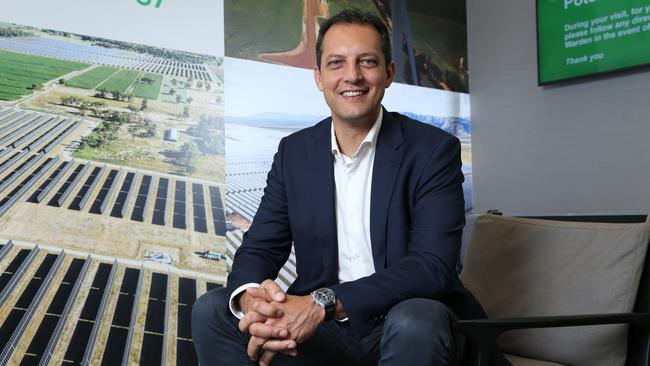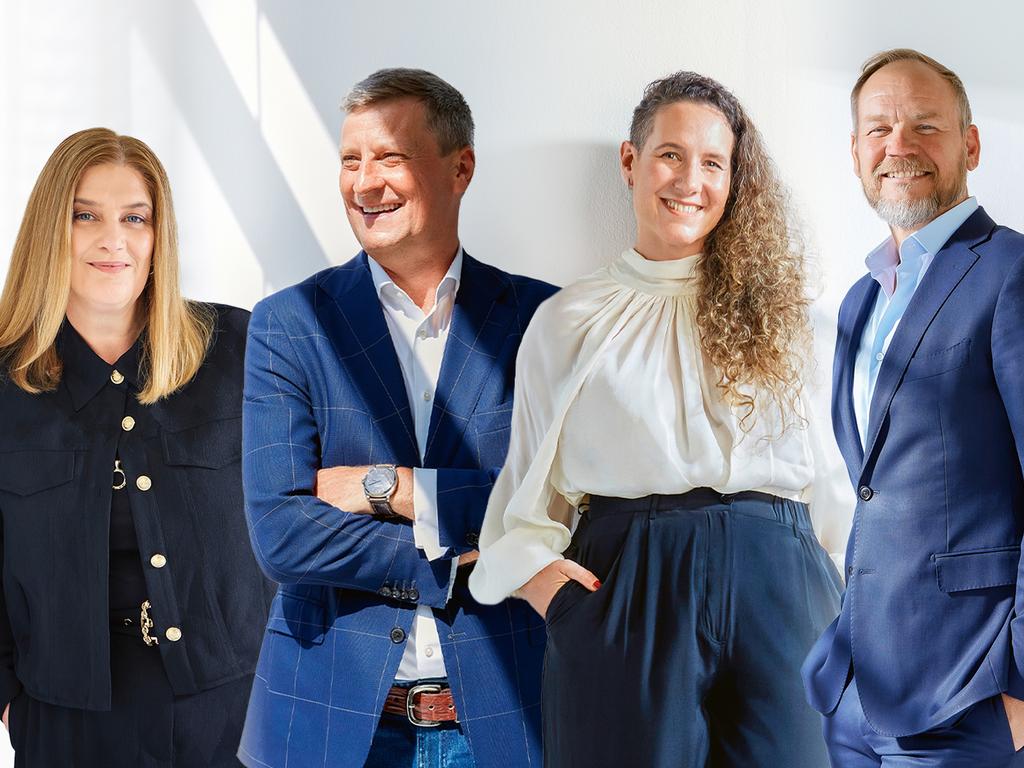Social licence the missing piece in Australia’s green dream: Potentia
The head of renewables giant Enel’s Australian business says the absence of a social licence framework for developers is holding back the energy transition.

The head of Italian renewables giant Enel’s green energy venture in Australia says a clear and detailed social licence framework to guide local and offshore developers would help close the gap between industry and community expectations around new wind, solar and battery projects, and ultimately fast-track the nation’s green energy transition.
Enel sold a 50 per cent stake in its Australian green energy platform to Japanese oil and gas company INPEX last year, and on Monday rebranded its local operation to Potentia Energy, as it looks to ramp up a 7GW pipeline of development projects across the country.
Chief executive Werther Esposito said Australia had the potential to become a “global champion in the energy transition”, but more work needed to be done to better define the responsibilities of developers in the planning and approvals process for new projects.
“I think the key priority for the energy transition is investing in the grid, accelerating as much as possible the planning and permitting system, and then understanding how to work well and jointly with the communities. So the importance of the social licence,” he said.
“I think, as of today, there is still space for defining what the criteria are for social licence. If we keep this undefined in terms of just engaging the community – absolutely, that’s important – but it’s important to define what that means and what are the expectations that we have, and then the communities can really become a part of the journey.
“Defining what social licence means, defining the key terms and expectations is becoming very important and urgent.”
The federal government has a goal of having renewables generate 82 per cent of the country’s power by 2030, but Australia remains well off the pace, as new projects struggle to secure transmission line security and overcome social licence issues. The former Labor government in Queensland unveiled plans earlier this year to introduce an “Australian-first” mandatory code of conduct, designed to “set new standards for social licence”, but they have so far failed to get off the ground.
Potentia operates three solar and wind farm sites in Australia – including the 275MW Bungala Solar Farm in South Australia – while its Girgarre Solar Farm, 50km west of Shepparton, is being commissioned. Construction of its $190m Quorn Park hybrid project in western NSW, including a solar farm and battery, is expected to begin in the new year after recently securing Zen Energy as a major offtake partner. The company says it has secured the rights to a 7GW pipeline of other projects across the country.
Mr Esposito would not comment on speculation it had secured control of a 1.1GW portfolio of solar, wind and battery assets owned by European infrastructure investor DIF Capital Partners and Cbus, but said acquisitions were a core part of the company’s expansion plans in Australia.
“I can confirm that we are looking at different opportunities that are quite mature,” he said.
“We are looking at different opportunities – greenfield but also brownfield.
“We strongly believe that today Australia is representing, in terms of investment, a very attractive opportunity for us … in terms of reliability, in terms of return. And so for sure, M&A is part of our strategy.”
In 2022 Potentia – then known as Enel Green Power – partnered with Andrew Forrests’s Fortescue Future Industries to explore green hydrogen opportunities in Australia and Latin America.
But as Mr Forrest and other major players, including Origin Energy and Woodside, scale back on their green hydrogen plans, Mr Esposito said it was important to prioritise proven technologies before exploring the potential of other emerging energy sources.
“I would say that now the priority is to accelerate on the traditional technologies – so wind, solar and storage – because I think that green hydrogen, to become really competitive, will require, still, a lot of investment in terms of research, in terms of development,” he said.
“It’s something that all the key and serious players have to look at and consider in their strategy, but I see that in the short term we need to make more efforts and accelerate on the other technologies.”
Mr Esposito said ramping up its retailing business in Australia was another priority over the coming year, after it recently signed up its first customers as part of a pilot program.
He said the retailing business would initially target commercial and industrial customers before expanding into the residential market as its renewables pipeline grew.







To join the conversation, please log in. Don't have an account? Register
Join the conversation, you are commenting as Logout